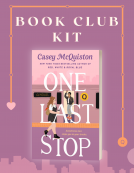
Battles for Freedom
The Use and Abuse of American History
by Eric Foner
This title was previously available on NetGalley and is now archived.
Send NetGalley books directly to your Kindle or Kindle app
1
To read on a Kindle or Kindle app, please add kindle@netgalley.com as an approved email address to receive files in your Amazon account. Click here for step-by-step instructions.
2
Also find your Kindle email address within your Amazon account, and enter it here.
Pub Date 30 Apr 2017 | Archive Date 10 Dec 2024
I.B.Tauris | I.B.Tauris in association with The Nation
Description
What can America learn from its radical history?
With the inauguration of President Trump, the US enters unchartered political territory and the dawn of a new era.
This timely collection of essays from eminent historian Eric Foner unearths the forgotten movements and characters of America’s radical past, pondering the need for another era of Reconstruction. Throughout his career, Foner has called out political leaders for their misuse of American history. Including a letter to Bernie Sanders from 2015, and a new piece on teaching radicalism in the age of Obama, Foner here reflects on how American progressives should celebrate the Radical tradition, and contemplates how to retrieve and renew it in an uncertain new age.
Eric Foner is a leading historian on American history. His book The Fiery Trial: Abraham Lincoln and American Slavery won the Pulitzer Prize, the Bancroft Prize and Lincoln Prize. He is DeWitt Clinton Professor of History at Columbia University and the author of several books.
Advance Praise
“Nothing could be more timely, more needed than this collection of Eric Foner’s work....Throughout his career, Professor Foner has enlightened and provoked us to become our better selves”
- TONI MORRISON
“extraordinary...at once erudite and unflinching, from one of America’s most gifted historians”
- JILL LEPORE
“indispensable to being a good citizen”
- MICHAEL KAZIN, EDITOR OF DISSENT AND AUTHOR OF WAR AGAINST WAR: THE AMERICAN FIGHT FOR PEACE, 1914-1918
"[Foner’s] approach, wisdom and insights are instructive and illuminating for all of us. A book well worth reading."
-MORNING STAR (UK)
Available Editions
| EDITION | Paperback |
| ISBN | 9781784537692 |
| PRICE | $12.99 (USD) |
Available on NetGalley
Average rating from 11 members
Featured Reviews
 Jill B, Reviewer
Jill B, Reviewer
My idea of a perfect dinner party would be to have Eric Foner there. Just him alone would be fine. And I wouldn’t have to say a word, I would just ask him to talk. This book is the next-best thing; in fact, it’s better, because you don’t even have to cook! You can just open it and read his thoughts on a variety of important topics.
Eric Foner is a Pulitzer Prize-winning historian, and the leading historian of America’s Reconstruction Era. He is also intellectually dazzling, and both wise and endlessly interesting. I have read all his books, taken his courses online, and now am delighted to read this collection of essays by him that are reprinted from “The Nation” Magazine, and that were published from 1977 to 2017. Even though I was familiar with many of them, he is so excellent that one can just never read him too much or too often.
The book begins with an introduction by Randall Kennedy, the renowned Harvard intellectual, who summarizes much of Foner’s more salient insights on both the politics of history and the politics of race.
Foner reminds us that historical accounts and representations of the past, such as those curated in museums, stake a claim in a very contested terrain, because what we remember about our history helps form our ideas about who we are as a people. Furthermore, the selection of which documents, pictures, statues or other representations of our past are displayed and which are omitted are critically important to that process.
It is ironic that museums have been regarded as “neutral” or “value-free” reflections of cultural heritage, because in fact, they are anything but.
Objects and ideas are selected to sustain certain myths and ideologies, valorizing them over those that are ignored. They in turn generate a cultural consciousness: this is what we “remember” and this is what we take to be “historical truth.” The form and structures of these remembrances are simultaneously a deliberate designation of what we choose to forget.
As Foner avers, “[u]ltimately, public monuments are built by those with sufficient power to determine which parts of history are worth commemorating and what vision of history ought to be conveyed.”
Foner rails against “the amnesia, evasions and misrepresentations” of popular history, particularly in the area of racial conflict. He notes that “[t]hroughout our history, contemporary political problems and commitments have shaped the questions Americans asked about their past and the answers they found.”
He looks not only at museums but also at the docudrama, observing astutely that “the fact that individual action is highlighted and collective action ignored is not simply a consequence of the small screen. Even more, one suspects, it reflects the persistent hold of that peculiarly American strand of individualism on the writers.”
Here he is making the point that a story of individual initiative is one of the ways in which a more threatening narrative of a social movement (especially one that is minority-led) is watered down to conform to the myth of the American Dream, in which any hard-working, courageous person has an equal chance to make a difference and/or to succeed in the American society and economy.
But, as he points out that the intellectual Eric Hobsbawm warned, “studies of the agency of ordinary people, so important in expanding the cast of historical characters, must be placed in the broader context of how social and political power is exercised.”
The fact that these stories rarely are put into a broader social and economic context offers a “meta” lesson about the political ends of carefully shaped narratives couched as “histories.” In addition to telling a story about a specific person, they subtly confer a certain authority or legitimacy upon what is actually a specific set of values, norms, and perspectives that in turn changes popular reactions to events.
In his essay reviewing the work of James W. Loewen (author of books such as “Lies My Teacher Told Me and “Teaching What <em>Really</em> Happened”) Foner singles out tours of historic plantations as a good example of selective memory. He argues that they “ignore or sugarcoat the lives of slaves. No whips, chains or other artifacts of discipline are on display, and presentations by guides focus on the furniture, gardens and architecture rather than the role of slave labor in creating the wealth they represent.” [We found this to be true on a recent tour of George Washington’s Mt. Vernon, where Washington’s slaves were described as Washington’s “servants.”]
Not only is slavery elided whenever possible, he charges, but also the slave <em>trade</em>, “a central element of the pre-Civil War Southern economy,” is generally omitted from public histories. And most germane to Foner’s primary field of study, “Reconstruction …is almost invisible in America’s public history.” To the extent it is covered, it is done so in a way that twists the truth. The history often told (“a time of rampant corruption presided over by unscrupulous Northern carpetbaggers and former slaves unprepared of the freedom that had been thrust upon them”) is an erroneous one that “helped to justify the subsequent policies of segregation and black disfranchisement in the South and the North’s prolonged indifference to white Southerner’s nullification of the federal Constitution.”
He holds that opponents of equality changed the narrative to one of a federal bureaucracy trampling on the rights of white citizens in favor of those who were lazy, incompetent, and bent on defiling white women. (Here Foner laments the irony of that canard, when so many slave women were raped by their white masters. Nevertheless, in the South, as he charges, the accusation of rape of a white woman by a black man, rarely substantiated, was enough to motivate a lynching.)
What Foner wants readers to know is that whiteness has an <em>economic</em> value, and that value has underlaid much of the history of race in America, albeit in an unacknowledged way.
Similarly, he emphasizes, “American radicalism is generally excised from public history.” He cites historian Charles Beard, who taught that American history had been shaped by the struggle of competing economic groups. But you don’t read about that in most history books. He applauds Bernie Sanders for bringing back a recognition of the importance of economic structures for the exercise of power in politics, but regrets that Sanders draws upon the experience of European socialists more than that of homegrown American radicals.
Other topics include social Darwinism (remarkably persistent, and especially popular now among the Alt-Right), affirmative action, the Electoral college, Lincoln and his personal growth on the issue of slavery, the uses of the memory of Lincoln, the 14th Amendment, a particularly astute analysis of Barack Obama and his presidency, and September 11 and the anti-Arab, “clash of civilizations” mentality that has gained so much popularity, and according to which western civilization is superior. (He reminds us: “The definition of ‘Western civilization’ is highly selective - it includes the Enlightenment but not the Inquisition, liberalism but not the Holocaust, Charles Darwin but not the Salem witch trials.”)
He concludes: “History does inform the present, and it should. That’s what I mean by a useable past: a historical consciousness that can enable us to address the problems of society today in an intelligent manner.”
Evaluation: Anyone not already familiar with the breadth and depth of Foner’s ideas will get an excellent overview from this wonderful and all-too-brief collection of essays. They have been chosen well: even the older essays remain relevant and important in light of current events.
 Reviewer 153322
Reviewer 153322
This is a nicely edited and introduced collection of the short pieces Foner has been doing for The Nation since 1977. Among them are elegantly written essays in which Foner revisits the executions of Sacco and Vanzetti, defends the controversial Smithsonian exhibit "The West as America" from charge of being "too PC!", teaches American history in 1990 Moscow, calls for a third Reconstruction and poignantly realizes that his mentor Richard Hofstadter's first full-time teaching job was the one from which Foner's father had just been fired for being a Communist.
A timely collection from a great historical and political thinker. I wasn't very familiar with Foner before, but I'm incredibly happy to have discovered his work in this collection. Considering the current political climate and our declining educational standards, to see someone wrestling with the failures of how the US romanticizes history and ignores ongoing issues like racism is extremely important right now.
 Peter S, Reviewer
Peter S, Reviewer
I have always admired the authors work. This collection of essays adds a more personal and revelatory touch to his work. The more you learn about the author the better feel you have for hisvwork.. this collection is a wonderful synthesis of his take on the world.
 Rebecca T, Educator
Rebecca T, Educator
Foner’s essays for the Atlantic in recent years, often relating history to current events. E.g., Obama never really learned that movements, not leaders alone, change politics. “[U]nlike Lincoln, who respected people to his left such as the abolitionist Frederick Douglass … and took their objections to some of his policies seriously, Obama seems to view criticism [from the left] as little more than an annoyance.” Foner also asks “what exactly constitutes political practicality?”—pointing out that Lincoln for a long time advocated compensated emancipation and colonization of freed blacks, a “harebrained scheme [that] had no possibility of enactment.” It was the wild-eyed abolitionists who put forward the actual program that passed. In terms of southern irredentism, he notes that “in Tennessee there are more memorializations of Nathan Bedford Forrest than any other figure in the state’s history (including president Andrew Jackson) despite Forrest having been a slave trader, founder of the Ku Klux Klan and the commander of Confederate troops that massacred black Union soldiers after they had surrendered.” I’d only quibble with the “despite”—the proper conjunction seems to me to be “because.” Foner discusses the personalization of the political in TV documentaries and their willingness to address race but not class; he also discusses the history promoted by public memorials (where unions are overrepresented but the Union and African-Americans underrepresented). He also points out that he has yet to meet a white male who doubted his own abilities because of the special favoritism he received due to race, class, or the old boys’ network—affirmative action is only degrading to some people. And he needles conservatives by pointing out that it’s the greatest proponents of American exceptionalism who want to get rid of one key exceptionalist feature, birthright citizenship.
Readers who liked this book also liked:
We Are Bookish
Mystery & Thrillers, OwnVoices, Teens & YA
Halle Tecco
Business, Leadership, Finance, Health, Mind & Body, Nonfiction (Adult)
We Are Bookish
General Fiction (Adult), Romance










